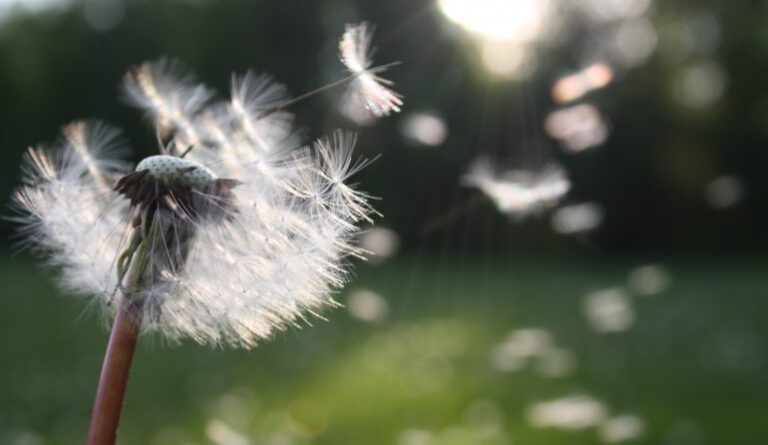The Cruel Side of the Desk
Like most of us, I spent the early stages of my literary career wondering off and on what They wanted. You know Them: the Editors. The mysterious voice of validation or doom (usually doom.) They accept or reject without comment from the cloudy pinnacles of Olympus, or (as I found out in grad school) their grad students do. Not all my scannings of Poet’s Market, or of those publications whose heights I hoped to scale, could tell me what They really wanted. Rondels appeared next to free verse (well, sometimes.) Poems about cups of tea next to poems about street rapes. In most cases, all I knew (and often all I know still) was that whatever They wanted, my work wasn’t it.
These days I read for a literary magazine, this one specializing in poetry. I’m not an editor—a reflection that inspires a profound gratitude, because their unpaid thankless workload is something that I never imagined when I was a young poet besieging Them. I’m just a reader, with a five-way choice of recommendations for each poem or set of poems: yes, strong maybe, maybe, weak maybe, or reject out of hand. I can reject it out of hand if I have no doubt in this world that the Real Editors would do so; if I have any real doubt, I send it on to them, with commentary. I’ve become one of Them, and not the quickest one, either (so if you’re wondering why your poem is still hanging fire at a certain title, I may be the reason. Sorry about that.)
Anyway, it finally occurred to me that I do have a forum (at least for another couple of weeks) in which to share thoughts about What I Really Want, and what I really don’t.
Might any of those thoughts be a bit cruel? Well, honestly, they might. I started out thinking that I’d be the Good Reader: the one who was never cold or condescending to young writers, the one I wish I’d had in my early days, the one who gave encouraging feedback where I thought it was warranted. That was before I knew that the journal for which I read gets around three thousand submissions per reading period. Those numbers and my function—to make the job halfway manageable for the real editors—mean, among other things, that I see a lot of fairly unprofessional work. This, I’m sorry to say, brings out the worst in me: Bad Reader, who, while I hope she would never say anything biting in actual communication with the aspirant poet, might sometimes file her teeth to points in private conversation. Over time, Bad Reader has come to be a bit judgmental; her shots have been known to be on the cheap side; and she does a lot of eye-rolling.
With this in mind, then, here are some thoughts about What I Want and What I Don’t. Some of them are very, very obvious if you’ve worked at all in the field, but I can say in their defense that I only wish they were more so, because clearly not everyone has internalized them.
To start with what evokes the instant rejection, there’s always…length. I recently rejected a poem of over ten pages…single-spaced, in a ten-point sans serif font. The journal for which I read, which I’ll leave discreetly anonymous for the moment, is an annual which comes in around a hundred pages…so the poet was saying, “I think my work is so incredible that it’s worth taking up 10% (or more, given font differences) of your entire annual publication.” Honestly, if “Howl” came up on my screen in this context, I’m not sure I’d recommend publishing it…and most poems are not “Howl.” The poet who can think about the journal’s probable needs is several yards ahead of one who plainly feels himself or herself above such mundane considerations.
On the bright side of length, I’m always inclined to be a little more favorable toward the poem which can clearly fit on one page of the journal. I always pass on a poem I like, length or no; but if I were an editor who had to make the final calls, and I had two poems I liked more or less equally, and one of them fit on a page and one of them required two…honestly, I’d probably make the pragmatic choice. Just saying.
Call me old and shriveled, but I’m a bit of a sucker for the conventions. If a poet ignores them, I like to feel that there’s a reason. I know some things about why e.e. cummings or Lucille Clifton eschewed capitalization; but I can’t say the same for every poem. It’s not always clear why a poet would eschew capitalization throughout the submission, sometimes including the cover letter (if there is a cover letter, which I at least take to be a good sign. I make something of an art of the cover letter myself, so if there’s one there, I always read it.) Maybe it gives the work an immense street cred which we dusty readers are in no position to appreciate. Possibly it marks the poet as a rebel in a literary establishment which, strangely enough, s/he still seems to be attempting to scale despite his or her rebellious nature. Query: can you be a capitalization rebel if approximately one-quarter of your generation is doing the same thing? Does the poet even know why s/he has bade farewell to capital letters, what that choice is doing for the poems? Hard to tell; but not so hard to reject.
I also like to see a title. As I may have mentioned a time or twelve in workshop, a title is an opportunity, a chance to interest the reader—often the only opportunity. Do you have to seize it? Not if you have a good reason for not doing so; not if you’re philosophically opposed to the conventions that stand in a lot of poems, like titles, line breaks, left justification, and so on. Are those conventions inherently better than doing it some other way? Not necessarily. But in the absence of compelling reasons to do otherwise, conventions are largely invisible (a two-edged virtue to be sure) and sometimes a sign of professionalism…by which I think I really mean “remembering that this is a job as well as a vocation.” If it’s a job, then getting people—like me—interested is part of the job. Titles are a chance to do that. Throw away the chance if you want to, either by skipping the title or by calling the poem “Untitled” (a penny-ante move that flares Bad Reader’s nostrils and twitches her eye muscles in a most unfortunate way.) But it’s nice to have some idea of what that choice achieves: what the poem gets in return for giving up what may be its only opportunity to hook someone.
And if more than three rock bands have recorded songs with the same title as your poem, you may wish to reconsider.
All this, of course, is only dust jacket and cover page: having a title, remembering that a journal has pragmatic needs beyond showcasing poets’ genius, and using the conventions of so-called standard written English with aplomb can’t for a moment redeem clichés, clunky line breaks, unintended and embarrassing double entendre, pretension, or misogyny…as in “Dear Poet: a glance at our masthead will show that all editors of and most readers for our publication are women. Therefore, the rhapsodies about your “personal porn heroine” and your expressed desire to “teach those bitches to beg” show, at the least, a rather incomplete sense of audience. Thanks for thinking of us!”
But a good dust jacket doesn’t hurt; it was cover art that made me first glance at the first book I read by an author whose work I eventually loved enough to make it the subject of my doctoral dissertation (J. R. Salamanca. There’s no Wikipedia entry for him, a gap I may have to redress.) If the cover art isn’t immediately repellent, there’s a better chance of my looking more closely for the big stuff.
The big stuff differs, of course, from reader to reader, but here at last is mine. I like to see concrete detail in quantities appropriate to the poem—a sense that everything happening isn’t all in the poet’s head, or that said head isn’t lodged anywhere that precludes him or her from observing the specifics of the world outside the head. I like oddball subject matter. A poem containing a mechanical clothes-presser, or a moray eel, or an outhouse, may not be so much better by that than the one with a dove or a dead dog, but surprise is generally one quality of the best poems, and it’s a lot easier to get there with a leech farm than by trying to say something entirely new about love qua love. I like some attention to sound—if I can’t tell why the line breaks are where they are, or find any internal rhymes or slant-rhymes or loose rhythm, so much the worse. I like poems that wring language a little, make it strain and work…but not to the point where it’s wrung dry, where the phrasing is so “original” that no one can tell to what it literally refers. And I like a poem that’s willing to shout, to make outrageous claims, to make a fool of itself and dance around and show its underwear: so many poems are so cautious, so muted, so minor in key. Some poems’ goals seem so…small.
Poems that do some or all of these things make me so happy. Mercifully, just about the time I’m thinking that Bad Reader has eaten my head, that I must’ve lost all ability to like anything and must’ve rejected all kinds of greatness in my misanthropic eye-rolling haze, something comes along that makes even Bad Reader smile like a seraph and send sentences full of bunnies and rainbows in the editors’ general direction. Bad Reader may have been soured by unprofessionalism, but somewhere in there she really wants to fall in love, even so.
So there you go: What I Want. Other editors or readers out there? You only get a few sentences in Poet’s Market, but we’ve got more room here. What do you really want?
This is Catherine’s seventeenth post as a Guest Blogger.


